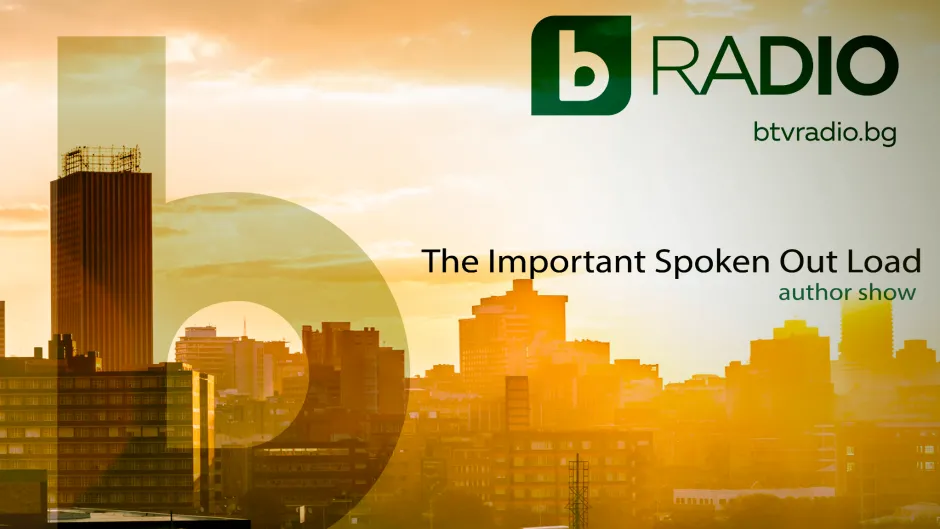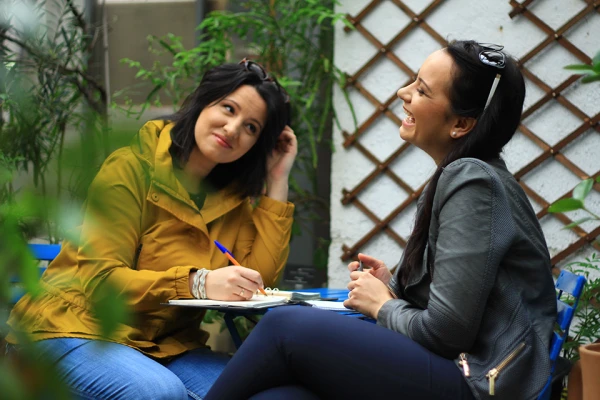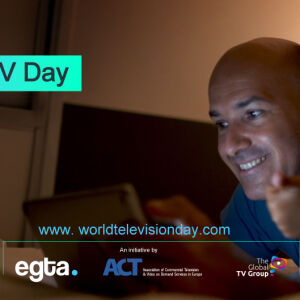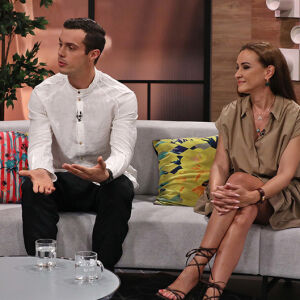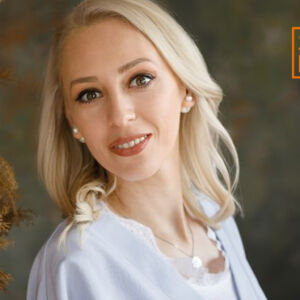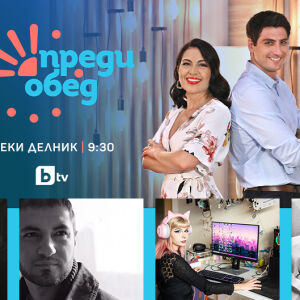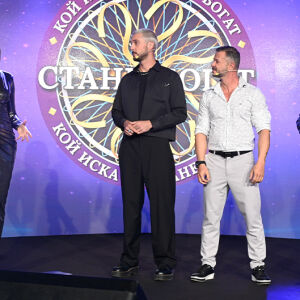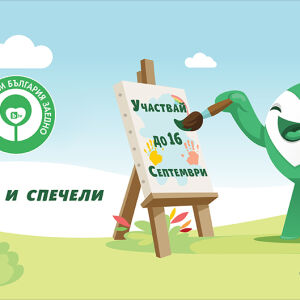bTV Radio is a leader in the information air, reaching the demanding, active and dynamic audience. With its coverage in Sofia, Bourgas, Veliko Tarnovo, Gorna Oryahovitsa, Svishtov, Kardzhali, Silistra and Velingrad, bTV Radio enables advertisers to present their diverse brands and content for each target group throughout the country.
Radio listeners can monitor all the bTV newscasts, as well as current affairs, lifestyle and sports shows on the television program. In the original shows of the radio - About the City and The Important Things Spoken Out Loud the topical subjects of the day are presented in a dynamic manner.
The Important Things Spoken Out Loud Celebrates its Second Anniversary
The original current affairs talk show on the air of bTV Radio, The Important Things Spoken Out Loud, is turning two. Hosts Tereza Zaharieva and Diana Hadzhiyska are welcoming guests and experts live in their studio to debate the hottest topics and events of the day. Listeners also have an important role, as they have the opportunity to share their viewpoints, make comments or ask questions about the discussed topics live on air by calling *7576.
Excerpts from the interview with the hosts of The Important Things Spoken Out Loud
Tereza Zaharieva and Diana Hadjiiska began working together 10 years ago at a radio station. Today they are a team again on the air of bTV Radio, where they host the show The Important Things Spoken Out Loud. Recently, the show celebrated is second anniversary on the air, and now we give the floor to the two hosts to tell us a bit more about themselves and their work".
What is the most important thing you want to say as hosts of the show, every weekday at 6 pm on bTV Radio?
TZ: Usually we select topics that we think are important to discuss even if they are not much covered in the media. We think that some issues need to be discussed more and that is how we choose the news featured in the show.
DH: We have discussions beforehand on how many people are interested in the respective topics and whether they will be listening. Then we act on the principle that there are issues which need to be raised, even though the audience may not be ready for them. We don’t want to sound like journalistic paragons, but we try to get some topics more attention than they usually receive in the rest of the media. It is also interesting to observe if more people will consider a topic important if we talk more about it on the radio.
What highlights the show is the opportunity for listeners to hear a different viewpoint from interesting guests. How do you plan to develop this trend in the show, which recently celebrated its birthday?
DH: The show is now two years old, and it has two hosts. This helps us a lot, because now the show really has a team and you don't have to deal with it all by yourself.
TZ: Now each show is prepared by the two of us together, no matter who hosts it. We help each other for editorials, ideas, concepts, and we discuss the questions that are important to be asked.
DH: The direction in which we want to evolve is to become a dedicated place on the radio air for guests with different opinions, who are still very important for the development of our society in general. Every Friday we want to set a commentary segment with people who are not among the usual commentators of the events in the country. We have great directors, scientists, economists and fellow journalists – they usually express their opinion only in the context of their work. And these people are so progressive and unorthodox that we want their opinion and voice to be heard on other matters, and to see the important topics of the week through their eyes. And most importantly, they will determine the important topics of the week themselves. This may be local or world news that has not received enough coverage but is extremely important. We are thinking of making a whole new audio packaging of the show, as well as to introduce new segments.
What do you think is the reason Bulgaria is on the last place in the EU regarding freedom of speech of the media?
DH: The most terrible factor is self-censorship. It certainly exists - sometimes justified, sometimes - not. It's about not saying anything inconvenient – not that Bulgaria has seen events such as in Slovakia or Russia – where journalists were killed over investigations. Now is the time to unite and start speaking without fear. In the end, it is our job, when something is not covered properly in the media, to show it.
TZ: In Bulgaria, journalists get killed in another way. I can't believe we've got this way, because when Diana and I started our journalistic career, things were different.
DH: Now someone will decide that we have been in journalism for 50 years.
TZ: It all really happened lightning fast.
DH: Ten years ago everything was very different, and we have only been in the industry for ten years, imagine how things have changed over the past twenty years.
TZ: I would say that this happened in the last five years.
In the show, a regular guest is Ombudsman Maya Manolova.
TZ: This is the only air in which she answers directly to listener questions. She gives her private phone, where she has sometimes received also texts with questions during the show. With these phone calls, the listeners receive answers regarding important subjects that are normally not featured. On one of her first guest visits an HIV-positive listener called with a very unpleasant problem - he was left without a GP, and nobody wanted to sign him up because of his diagnosis. He could not get dental care either. The man was attracted to the anonymity of the radio because we do not show his face.
DH: One of the main ideas behind the show The Important Things Spoken out Loud was to have the opportunity for live featuring of the opinions of many listeners.
What subject has drawn your attention lately?
DH: One topic I will soon cover, but it requires more time and resources, is the change in a law that has not been touched since 1968. I am talking about the so-called "vehicle appropriation," because in fact there is no term called "car theft" in Bulgaria, but the problem is not exactly in the wording.
TZ: I have begun discussing the subject of the status of the Electronic Systems Technical School that was scheduled for changes. Currently the school is under the jurisdiction of the Technical University and it produces our best IT specialists. According to people in the industry, this would destroy a unique method of teaching in Bulgaria. We followed the whole case, and in the end the Ministry of Education and the School came to an agreement. It is important to support good examples in Bulgarian education.
You mentioned that you want to increase the focus on women's topics in the show?
TZ: We strive to do it - creches and kindergartens were widely discussed in the show, alongside the quality food topic.
DH: I would rather present topics that have so far been perceived as feminine, as socially important for everyone.
How do you imagine the show after one year, for its third birthday?
DH: I hope we will continue in the direction we have started with Theresa. We want to have room for the unorthodox thinkers, and although we are young, the lack of life experience would not interfere with our sober journalistic assessment. We appreciate the chance given to us and we know how much more work we have to do.
Contacts:
bTV Radio Group
Sales department
Sofia 1463
Bulgaria sq. No. 1
National Palace of Culture, 11th floor
Тel. (+359) 2 8039 090
e-mail: [email protected]
